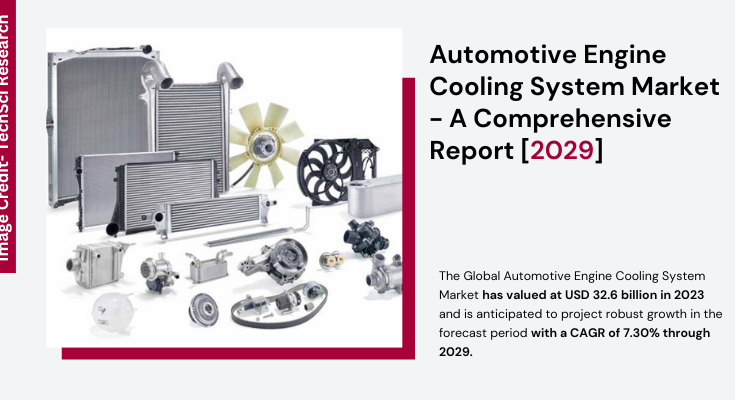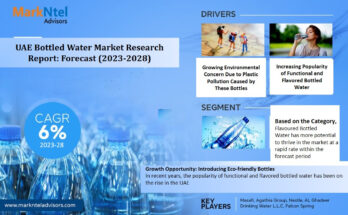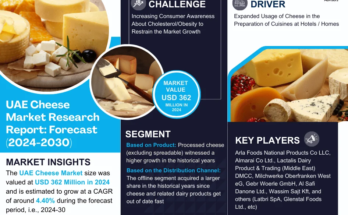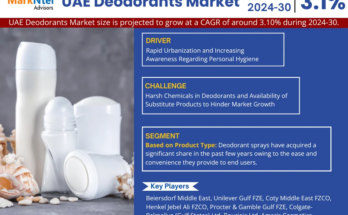According to TechSci Research report, “Global Automotive Engine Cooling System Market – Industry Size, Share, Trends, Competition Forecast & Opportunities, 2029”, the Global Automotive Engine Cooling System Market stood at USD 32.6 billion in 2023 and is anticipated to grow with a CAGR of 7.30% in the forecast period, 2025-2029. The automotive engine cooling system market is a crucial segment within the automotive industry, dedicated to ensuring the optimal operating temperature of vehicle engines. The engine cooling system is responsible for dissipating excess heat generated by the combustion process, maintaining the engine’s temperature within a safe and efficient range. This system plays a vital role in preventing overheating, protecting engine components from damage, and optimizing engine performance and longevity.
One of the primary functions of the automotive engine cooling system is to regulate the temperature of the engine by transferring heat away from critical components. The cooling system typically consists of various components, including the radiator, water pump, thermostat, cooling fan, hoses, and coolant reservoir. Coolant, usually a mixture of water and antifreeze, circulates through the engine and absorbs heat generated during combustion. The heated coolant then flows through the radiator, where it releases heat to the surrounding air through convection.
Moreover, the automotive engine cooling system helps to maintain consistent engine temperatures under varying operating conditions. The thermostat, a key component of the cooling system, regulates the flow of coolant to the radiator based on the engine’s temperature. When the engine is cold, the thermostat remains closed, allowing coolant to circulate within the engine to reach operating temperature quickly. Once the engine reaches the optimal temperature, the thermostat opens, allowing coolant to flow to the radiator for cooling.
Additionally, the engine cooling system plays a critical role in improving fuel efficiency and reducing emissions. By maintaining the engine at an optimal operating temperature, the cooling system helps to optimize combustion efficiency and minimize fuel consumption. Additionally, efficient engine cooling reduces the formation of harmful emissions such as nitrogen oxides (NOx) and hydrocarbons (HC), contributing to cleaner air and reduced environmental impact.
Furthermore, advancements in automotive technology are driving innovation in engine cooling systems, leading to the development of more efficient and environmentally friendly solutions. Manufacturers are incorporating technologies such as electric cooling fans, variable flow water pumps, and lightweight materials to improve the performance and efficiency of cooling systems. Electric cooling fans, for example, are more energy-efficient than traditional mechanical fans and can be controlled electronically to optimize cooling performance.
In conclusion, the automotive engine cooling system market is essential for maintaining optimal engine temperatures, protecting engine components, and optimizing vehicle performance and efficiency. By dissipating excess heat and regulating engine temperatures, the cooling system plays a critical role in preventing engine damage, improving fuel efficiency, and reducing emissions. Ongoing advancements in technology are expected to drive further innovation and adoption of advanced cooling system solutions across the automotive industry.
Browse over market data Figures spread through 180 Pages and an in-depth TOC on “Global Automotive Engine Cooling System Market.” @ https://www.techsciresearch.com/report/automotive-engine-cooling-system-market/21191.html
The automotive engine cooling system market is witnessing growth across various regions, including Asia Pacific, North America, Europe & CIS, South America, and the Middle East & Africa. Engine cooling systems play a crucial role in maintaining optimal operating temperatures for vehicle engines, thereby ensuring efficient performance and longevity. Let’s delve into the market overview of each region:
In the Asia Pacific region, which comprises countries like China, India, Japan, and South Korea, the automotive engine cooling system market is experiencing significant growth. The region is home to some of the largest automotive markets globally and is witnessing robust growth in vehicle production and sales. Factors such as rapid urbanization, increasing disposable incomes, and growing automotive infrastructure are driving the demand for engine cooling systems in the region.
North America represents another key market for automotive engine cooling systems, with the United States and Canada being major contributors to market growth. The region has a mature automotive industry and a high vehicle ownership rate, driving the demand for replacement and aftermarket engine cooling systems. Additionally, stringent emission regulations in the region are prompting automakers to invest in advanced cooling technologies to improve engine efficiency and reduce emissions.
Europe & CIS also constitute a significant market for automotive engine cooling systems, with countries like Germany, France, and Russia leading the market. The region has a well-established automotive manufacturing base and is known for its technological advancements in automotive engineering. Stringent emission standards in the European Union are driving the adoption of innovative engine cooling solutions, including electric cooling fans and advanced coolant systems.
South America is witnessing steady growth in the automotive engine cooling system market, with countries like Brazil, Argentina, and Chile driving market demand. The region’s automotive industry is growing, supported by rising consumer demand for vehicles with improved performance and efficiency. Engine cooling systems are essential components in vehicles operating in the region’s diverse climatic conditions, driving the demand for reliable and efficient cooling solutions.
The Middle East & Africa region is also experiencing growth in the automotive engine cooling system market, albeit at a slower pace compared to other regions. The region’s automotive industry is evolving, driven by infrastructure development and increasing consumer demand for vehicles with advanced features. Engine cooling systems are becoming increasingly important in the region as automakers focus on improving vehicle reliability and durability.
Overall, the global automotive engine cooling system market is characterized by growth across multiple regions, driven by factors such as increasing vehicle production, stringent emission regulations, and technological advancements in cooling technologies. As automakers continue to prioritize vehicle efficiency and performance, the demand for advanced engine cooling systems is expected to further drive market growth in the coming years.
Major companies operating in the Global Automotive Engine Cooling System Market are:
- Visteon Corporation
- Mahle GmbH
- BorgWamer
- Calsonic Kansei Corporation
- Continental AG
- Valeo SA
- Delphi Automotive LLP
- Denso Corporation
- Schaeffler Group
- Perkins Engines Company Ltd
Download Free Sample Report @ https://www.techsciresearch.com/sample-report.aspx?cid=21191
Customers can also request for 10% free customization on this report
“The global automotive engine cooling system market is undergoing dynamic transformations driven by technological innovations, stringent environmental regulations, and the increasing adoption of electric vehicles. Engine cooling systems, once conventional, are evolving with lightweight materials, smart technologies, and sustainability in focus. As the automotive industry shifts toward electrification, the demand for efficient thermal management solutions rises, propelling the market forward. Connectivity features, nanotechnology applications, and eco-friendly coolant formulations are becoming standard, reflecting a commitment to sustainability. Despite economic uncertainties and supply chain challenges, the market’s future appears promising as manufacturers strive to balance innovation, compliance, and environmental responsibility in a rapidly changing automotive landscape.” said Mr. Karan Chechi, Research Director with TechSci Research, a research-based management consulting firm.
“Automotive Engine Cooling System Market – Global Industry Size, Share, Trends, Opportunity, and Forecast, Segmented By Vehicle Type (Two Wheelers, Passenger Vehicles, Commercial Vehicles), By Engine Type (Air-Cooled Engine, Liquid-Cooled Engine), By Region, Competition, 2019-2029”, has evaluated the future growth potential of Global Automotive Engine Cooling System Market and provides statistics & information on market size, structure and future market growth. The report intends to provide cutting-edge market intelligence and help decision makers take sound investment decisions. Besides, the report also identifies and analyzes the emerging trends along with essential drivers, challenges, and opportunities in the Global Automotive Engine Cooling System Market.
You may also read:
India Brake Pads, Shoes, and Linings Market Worth [2029], Overview, Trends, Forecast
India Electric Vehicle Charging Infrastructure Market [2029] Analysis, Dynamics, and Key Players.
India Two Wheeler Helmet Market Value, Trends [2029], Economy, Expansion, Leader
India Passenger Car Market Analysis, Development [2029], Key Terms
India Commercial Vehicle Market [2029] – Analysis, Trends, & Insights
India Automotive Smart Antenna Market Advancements and Business Opportunities [2029]
Table of Content-Automotive Engine Cooling System Market
- Introduction
1.1. Product Overview
1.2. Key Highlights of the Report
1.3. Market Coverage
1.4. Market Segments Covered
1.5. Research Tenure Considered
- Research Methodology
2.1. Objective of the Study
2.2. Baseline Methodology
2.3. Key Industry Partners
2.4. Major Association and Secondary Sources
2.5. Forecasting Methodology
2.6. Data Triangulation & Validation
2.7. Assumptions and Limitations
- Executive Summary
3.1. Market Overview
3.2. Market Forecast
3.3. Key Regions
3.4. Key Segments
- Impact of COVID-19 on Global Automotive Engine Cooling System Market
- Global Automotive Engine Cooling System Market Outlook
5.1. Market Size & Forecast
5.1.1. By Value
5.2. Market Share & Forecast
5.2.1. By Vehicle Type Market Share Analysis (Two Wheelers, Passenger Vehicles, Commercial Vehicles)
5.2.2. By Engine Type Market Share Analysis (Air-Cooled Engine, Liquid-Cooled Engine)
5.2.3. By Regional Market Share Analysis
5.2.3.1. Asia-Pacific Market Share Analysis
5.2.3.2. Europe & CIS Market Share Analysis
5.2.3.3. North America Market Share Analysis
5.2.3.4. South America Market Share Analysis
5.2.3.5. Middle East & Africa Market Share Analysis
5.2.4. By Company Market Share Analysis (Top 5 Companies, Others – By Value, 2023)
5.3. Global Automotive Engine Cooling System Market Mapping & Opportunity Assessment
5.3.1. By Vehicle Type Market Mapping & Opportunity Assessment
5.3.2. By Engine Type Market Mapping & Opportunity Assessment
5.3.3. By Regional Market Mapping & Opportunity Assessment
- Asia-Pacific Automotive Engine Cooling System Market Outlook
6.1. Market Size & Forecast
6.1.1. By Value
6.2. Market Share & Forecast
6.2.1. By Vehicle Type Market Share Analysis
6.2.2. By Engine Type Market Share Analysis
6.2.3. By Country Market Share Analysis
6.2.3.1. China Market Share Analysis
6.2.3.2. India Market Share Analysis
6.2.3.3. Japan Market Share Analysis
6.2.3.4. Indonesia Market Share Analysis
6.2.3.5. Thailand Market Share Analysis
6.2.3.6. South Korea Market Share Analysis
6.2.3.7. Australia Market Share Analysis
6.2.3.8. Rest of Asia-Pacific Market Share Analysis




